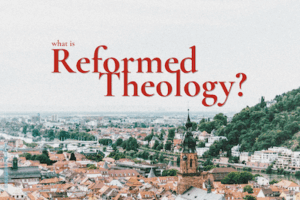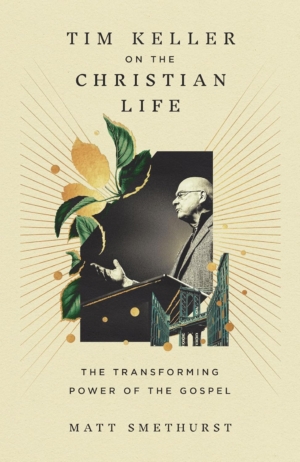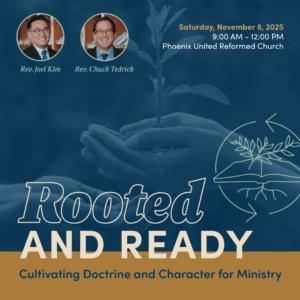I suppose no sober man will now pretend to any such extraordinary gift, which ceased in the church long since, as the gift of tongues, and other effects of the Spirit extraordinary. Continue reading →
A Partial Explanation of Psalm One By Girolamo Zanchi
Zanchi’s explanation of the psalm provides an excellent introduction to his orations and to his thinking about theological education. In it he reckoned that the psalmist’s main message was simply that “we should devote ourselves, with our whole soul, to the pursuit of God’s law and piety and [that] we should meditate upon that law day and night.” As simple as is this plain reading of the text, it is a keynote to which Zanchi returned over and over. Continue reading →
What Is Reformed Theology? (Part 7)
There was a time when most of the world was outside the promises and people of God (Eph 2:12). From the formation of the national Israelite church under Moses, the world was, from the biblical perspective, divided between Jews and Gentiles. The temporary ceremonial and judicial laws, which were fulfilled by Christ and which expired with and were abrogated by his death (Acts 10 [all]), taught that not only certain foods were unclean (and illegal) and defiling but also that whole people groups were also unclean and defiling. Since the Lord instituted the sacrament of circumcision under Abraham (Gen 17:9–14) the Jewish church had been literally and figuratively cut off from the surrounding Gentile religions. Continue reading →
Top Five Posts For The Week Of November 3–9, 2025
These were the top five posts for the week of November 3–9. Continue reading →
Trueman: It’s Not Big Eva Now But Gig Eva
Many years ago, I coined the term “Big Eva.” While today the term is used as a quick and lazy smear for any well-known figures of a previous generation that a particular X-man happens to dislike, at the time I intended it . . . Continue reading →
Heidelcast For November 9, 2025: Have This Mind: Philippians (4)
In this episode Dr Clark continues the series, “Have This Mind” Continue reading →
Young Men Seduced Online To Murderous Nihilism
Early on January 1, 2025, as everyone else in Los Angeles was still ringing in the new year, Jonathan Rinderknecht hiked into the Santa Monica Mountains and, with his cigarette lighter, allegedly set some paper or brush or both alight. The flames . . . Continue reading →
Heidelcast: Superfriends Saturday: Are Youth Groups Beneficial?
It’s a Superfriends Saturday on the Heidelcast! Continue reading →
From Glory To Glory: The Story Of Christ In Psalms 15–24 (Part 7)—Psalm 18 And Christ’s Cords Of Death
The time when I felt closest to death was years ago as I was swimming in the Gulf of Mexico, trying to get back to shore. The trouble occurred while I was still a long distance from shore and felt this horrible . . . Continue reading →
Video: R. Scott Clark Talks With Kevin DeYoung About His New Book, The Heidelberg Catechism
R. Scott Clark chats with Kevin DeYoung about his new book: The Heidelberg Catechism: A Historical, Theological, & Pastoral Commentary. Continue reading →
What Would Calvin Say About Premillennialism?
In 2007, a prominent evangelical (Bible church) pastor suggested that were Calvin alive today he would be premillennial and that true Calvinists should be (pre-trib, Dispensational) premillennialists.1 Some of us were a little surprised about this breakthrough in Calvin studies coming from . . . Continue reading →
The Sweet Exchange
We exist in a vacuous epoch of lies where the most hardened hearts are eclipsed by reality due to their sin. The ability to press objective truth with a subjective lens has taken over and caused a stir on true morality from . . . Continue reading →
Review: Tim Keller on the Christian Life: The Transforming Power of the Gospel By Matt Smethurst
Crossway’s series about famous theologians on the Christian life has covered centuries of church history to help us see how some of the church’s brightest lights have offered insight about how to live faithfully and be well-equipped before the Lord. In this . . . Continue reading →
The Root Of Wokeness: Feminization
In 2019, I read an article about Larry Summers and Harvard that changed the way I look at the world. The author, writing under the pseudonym “J. Stone,” argued that the day Larry Summers resigned as president of Harvard University marked a turning point . . . Continue reading →
Upcoming Conference In Phoenix This Saturday: Rooted And Ready
Phoenix United Reformed Church is pleased to be hosting a conference by Westminster Seminary California—Rooted and Ready: Cultivating Doctrine and Character for Ministry. If you are in the area, please consider joining us on Saturday, November 8, from 9am–noon! Rev. Joel Kim . . . Continue reading →
Heidelminicast: Law, Gospel, and the Three Uses of the Law
In this episode Dr. Clark talks about evangelicals and the Bible. Continue reading →
Heidelminicast: In Defense of Female Seminarians
In this episode Dr. Clark talks about evangelicals and the Bible. Continue reading →
Trueman: The British Government Was Making A Point
Back in the U.K., the arrest of Linehan for his tweets was another shocking escalation of the culture war. To those unfamiliar with his work, he was the writer of Father Ted, a cleverly absurd Irish comedy that brought the tradition of dark Gaelic humor, . . . Continue reading →
The Hall of God’s Faithfulness, Part 2: Faith And Righteousness (Hebrews 11:4–7)
I remember being a young child walking through the entrance to the church my family attended at the time. Looking up, I saw stained glass, and for the first time I wondered why it was there. I asked my dad, who replied . . . Continue reading →
Our Greatest Affinity Is Not Blood And Soil But Grace And Truth
Not only is the Church the catholic (meaning universal) communion of saints, but we are called specifically a distinct race and kingdom. Peter writes to the churches in the diaspora: “But you are a chosen race, a royal priesthood, a holy nation, . . . Continue reading →








